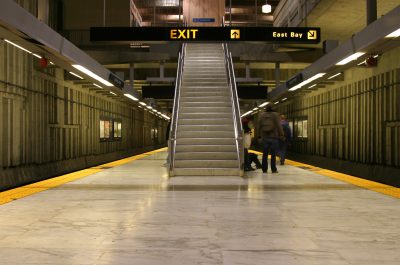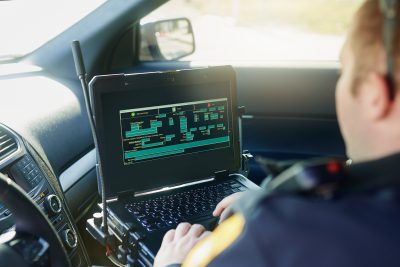Transportation Police
A career as a transit police officer can be a rewarding and fulfilling experience for those who are passionate about protecting people and property. Transit police officers are responsible for ensuring the safety of transit riders, employees, and assets on public transportation systems. Their duties include patrolling stations, buses, trains, trams, and other vehicles; responding to emergency calls; apprehending criminals; enforcing rules and regulations; issuing citations; performing ticket inspections; conducting investigations into suspicious activity; providing customer service; and more.
Transit officers must have excellent communication skills in order to interact effectively with passengers, co-workers, supervisors and other law enforcement personnel. They must also have good observation skills in order to detect any suspicious behavior or criminal activity. Furthermore, they should possess strong problem-solving abilities in order to quickly assess situations and develop effective solutions.
The common tasks of transit police officers involve patrolling transportation areas in order to maintain safety on public transportation systems. This includes patrolling train platforms, bus stops and other related locations with an emphasis on deterring crime by identifying suspicious persons or activities. They may also conduct undercover operations or provide security at special events. Other duties may involve interviewing witnesses or suspects, participating in investigations into criminal activity, apprehending criminals in the course of their patrols or responding to emergency calls for assistance from passengers or commuters.
Transit police officers must also enforce laws and regulations related to the public transportation system. This involves checking passengers’ tickets for validity as well as issuing citations if necessary. They may be called upon to physically apprehend individuals engaging in criminal behavior such as robbery or assault which requires physical strength and quickness when necessary.

Transit Police
Basic Requirements




The hiring process begins with candidates submitting an online application, which typically includes their personal information, education, and work experience. The agency will then go through an initial screening process to ensure that the applicants meet the minimum qualifications for the position, such as age, education, and citizenship status requirements.
Candidates who pass the initial screening will then be invited to take a written examination to assess various skills and aptitudes, such as critical thinking, decision-making, memory recall, and report writing. This will help ensure that the candidates have the foundational knowledge necessary for success in a law enforcement career.
To ensure that candidates have the requisite physical abilities to perform their duties, they will have to successfully complete a physical fitness test. This test may include events such as running, push-ups, sit-ups, and other exercises that assess stamina, strength, and agility.
After successfully completing the previous steps, candidates will be invited for an oral interview with agency representatives. This is a critical opportunity for both the agency and the candidate to assess their compatibility and for the candidate to demonstrate their interpersonal skills, problem-solving abilities, and commitment to law enforcement. In many cases, if an applicant successfully passes the oral board, they may be issued a conditional offer at this stage.
Law enforcement agencies conduct thorough background investigations on candidates to ensure that they possess the moral character and integrity needed for the job. The investigation may include interviews with family, friends, neighbors, employers, and others who can provide insight into the candidate's character. Additionally, candidates may be subjected to credit checks, driving record reviews, and criminal history checks.
To assess a candidate's emotional and mental stability, they may undergo a psychological evaluation. This process may include interviews with a Psychologist or Psychiatrist, as well as written tests that assess personality traits and mental stability. In most cases, the Psychologist or Psychiatrist will have access to the details of the background investigation.
Many agencies require a polygraph examination to verify the truthfulness of the information provided by candidates during the application process. This step aims to detect any omission or falsification of information, which could disqualify an applicant from the law enforcement profession.
Candidates must pass a comprehensive medical examination to ensure that they are in good health and physically capable of performing the demanding tasks associated with law enforcement work. The examination includes vision and hearing tests, as well as a thorough assessment of their overall medical condition.
Upon a final offer of employment, having successfully satisfied the requirements of the hiring process, successful candidates will attend an agency-sponsored training academy. Some agencies require their officers to participate in a field training program prior to the academy. Other agencies require the candidates complete the academy before starting their field training program. This structured program provides extensive academic, physical, and practical training on the knowledge, skills, and abilities necessary for a career in law enforcement.
After graduating from the academy, new officers will enter a probationary period, working under the supervision of experienced colleagues. This phase allows officers to practically apply their training on the job and provides the agency with an opportunity to evaluate their performance and readiness for independent duty. This timeframe can vary between 12 months all the way to 24 months.
Disclaimer:
Transit Law Enforcement
Specialized units in transit law enforcement are specialized teams or divisions within transit police agencies that focus on specific areas of expertise or address unique challenges within public transportation systems. Some of the specialized units commonly found in transit law enforcement include:








